Zimbabwe
The Zimbabwean government has deployed medical staff in the army to take up posts at major public hospitals. The new directive comes as a week-long strike by junior doctors continues to take its toll on healthcare delivery.
Gerald Gwinji, permanent secretary in the Ministry of Health admitted that the industrial action had added pressure on strained public hospitals which were already struggling with drug shortages and under-funding from the state.
“When some people are not coming to work there is bound to be an impact on service delivery and because these cadres (doctors) on strike are at the first level of care, the impact is even greater,” Gwinji said.
“In some instances we have deployed cadres from the uniformed forces to help in reducing the pressure,” he added.
#Zimbabwe hospitals open but some patients being turned away. most doctors are on strike, army doctors trying to help until strike ends
— harumutasa/aljazeera (@harumutasa) February 22, 2017
The two main hospitals in the country, the Parirenyatwa Hospital, Zimbabwe’s largest public hospital in Harare and the United Bulawayo Hospitals in the country’s second city Bulawayo, are turning away non-critical patients and instead referring them to local clinics run by city councils.
Public sector doctors last week commenced a nationwide strike protesting low salaries and poor conditions of service. The main demand of the doctors is for an increase in their on-call allowance which has remained unchanged since 2014 – they want the government to honor a pledge to peg it at a minimum of $720 per month.
They are also demanding duty-free subventions to allow them to purchase their own vehicles and also insisting that the government employs 120 trained doctors who will be out of work in no time.
Zimbabwe has been hit by an acute drought worsened by an economic crisis that has led to currency shortage. The government has introduced local bond notes equivalent to the US dollars to solve the currency situation.
The country also suffered from a series of protests. Some demanding electoral reforms ahead of the next elections. Others against the introduction of the bond notes with others targeted at the high unemployment and worsening economic situation in the country.




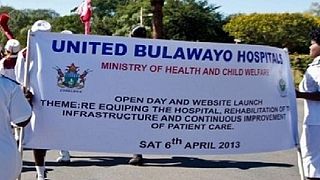
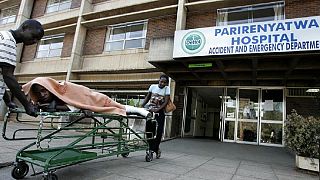

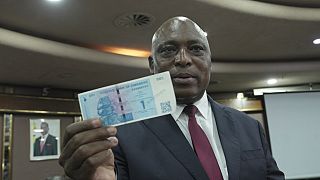


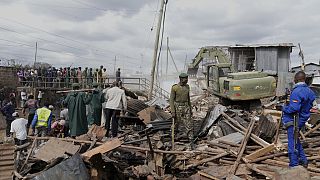
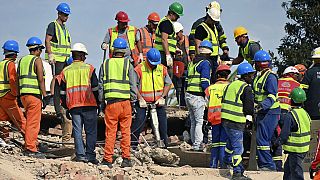
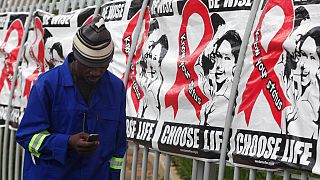
02:17
Kenya: Start up devises personal patient information as payment option for healthcare
01:00
Nigerian army tries two of its personnel over deadly drone strike accident
02:34
DRC: South Kivu launches large-scale vaccination
02:14
Malaria: The plight of residents of low-income neighbourhoods
01:33
Haiti: Health system near collapse as medicine dwindles and gangs attack hospitals
01:58
About 15 million Sudanese in need of urgent health assistance